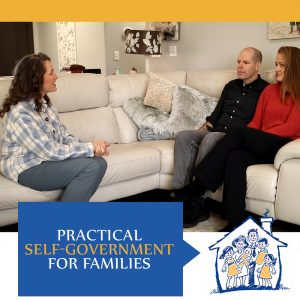Falling In Love With Your Children Again And Again!
“Mom! Mom! Mom!” said a boy at the swimming pool one day.
The boy’s mother didn’t answer back. She was busy setting up her pool chair.
“Mom! Can you get me my swim noodle? Mom?” the boy repeated.
The mother still said nothing. The anxiety was obviously building in the boy.
Soon, the mother was annoyed with the boy. She walked over to him with his noodle and hit him with it on the head. “If I hear you say my name one more time, you’ll get it,”she said.
The boy, about age eight, dropped his head and swam away. He didn’t get what he wanted; some support and love from his mother. And, after the interaction with his mother, he felt alone.
Why would a mother not want to hear her name? At the end of Les Miserables, Jean ValJean said that being called father was the sweetest word he ever heard. It was what he wanted to be called his whole life. This moment with Cozette and Jean ValJean was the happy ending of the book. How could the word “mother” or “father” make some parents so upsetand other parents blissfully happy?
When a baby says “mama” or “dada” for their first words, parents beam with pride. The love that they have felt for their child since the moment it was conceived is finally reciprocated with words from the child.
Why then, after years of meeting a child’s needs and wanting to help the child, do so many parents decide that spending time with the child, or meeting the child’s needs, is now a burden? Is it just selfishness? Is it a strange method of teaching children to learn new adult skills? Is it abandonment? Or, is it just that the parent is worn out by or annoyed with their child’s behaviors?
I think most parents are probably just tired and annoyed. They would still say they loved their child if they were asked. But, they start spending their days dreaming of solitude or what will happen after bed time.
Two Kinds Of Love
Most people think they understand the word love. We have all felt it, haven’t we? But, when examined, the word “love” offers two distinct definitions which might answer the question of why a parent would decide to hate the sound of their own name, even though the name is being said by a person they love.
The firstkind of love is like the lovethat a mother has for her child, or a child for his mother, andis based on an instinct and bond. When a person is bonded to another person there is a kind of obligation to love which is felt really deeply when the bond begins. This kind of love helps us keep loving some people even when our relationships are not as enjoyable as they should be. Maybe the best way to describe this kind of love is a spiritual connection between two people that is instrumental in forming the people into who they are intended to become.
The second definition of love is probably the type of love that most people focus on. In fact, this kind of love is easy to fall into and out of.
Webster’s 1828 dictionary says about this second love: “…to be pleased with; an affection of the body excited by beauty and worth of any kind, or by the qualities of an object which communicate pleasure…”
Let’s face it. Parenting is the hardest work on the planet. And, we are teaching people who have agency and bodily emotions, ‘to boot.’ This project isn’t going to always feel pleasing.
Clearly, the mother at the pool in the above story was not pleased by her child’s method of getting her attention.
How To Fall In Love Again: Increasing Parenting Pleasure
I believe in doing lots of personal assessment. If I can analyze myself, as a parent, I can deliberately help myself enjoy my parenting interactions and be a more effective teacher. (The same principle works for any relationship.)
I have figured out what my body does and thinks when it is bothered by one of my children. In fact, I feel a general dimming of my spiritual faculties when I allow myself to become annoyed like this. It is probably because I am selfishly focusing a lot of energy on how I feel instead of what I need and what the child needs.
When I feel myself become annoyed by a behavior, I stop and pray. I go to my room and pray to feel love for my child. When I have prayed and planned what to say to them about their behavior, then I return to teach or correct them.
Correcting negative behaviors is important. But the teaching will only last if it is presented with the appropriate loving tone. In fact, it is important that both kinds of love can be felt. The deeper bonded love is vital for the child to establish a healthy connection with you, and the pleasing supportive kind of love is important for making the correcting environment emotionally safe and nurturing.
When I am calm and ready to talk to my children about the behavior problem, I always try to determine what kind of skill they need to re-focus on. In our home, we learn things like how to accept a no answer, how to disagree appropriately, etc. Most of the time a behavior problem is a new opportunity to teach the child how to use one of the basic life skills that they have already been taught in our home.
When a child knows skills for self-government, they are happier and more respectful with their communication, which leads to becoming a more pleasing person to be around. That’s right, we can actually teach our children to be pleasing and lovable. The key is to be that pleasing lovable kind of person when we are teaching these lessons to our children.
To learn more about how to teach appropriate behaviors and how to correct children lovingly, read Nicholeen’s parenting books and listen to her classes HERE.
Index
- Accepting No Answers and Criticism, Anxiety, Assertive Communication, Calm, Changing Hearts, Character Building, Culture, Disagreeing Appropriately, Encouragement, Family Culture, Family Unity, Mutual Respect, No Answers, Power Struggling, Praise, Pre-Teach, Relationships, Respect, Roles, Seek to Understand, Skills, Social Skills, Structure, Tone






